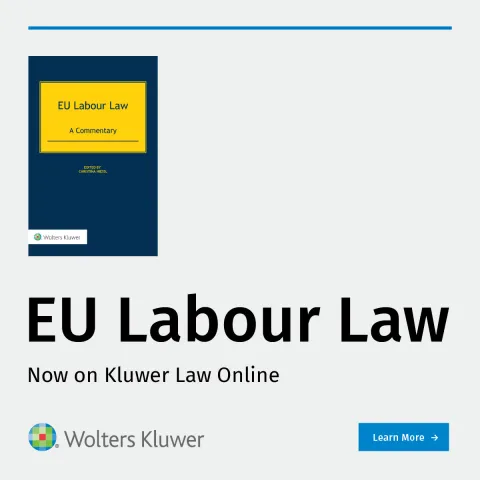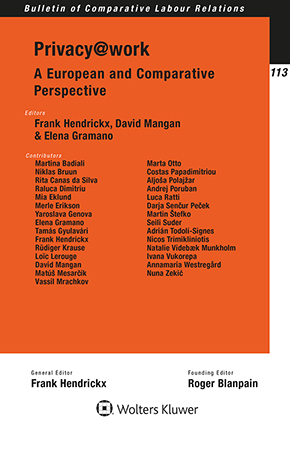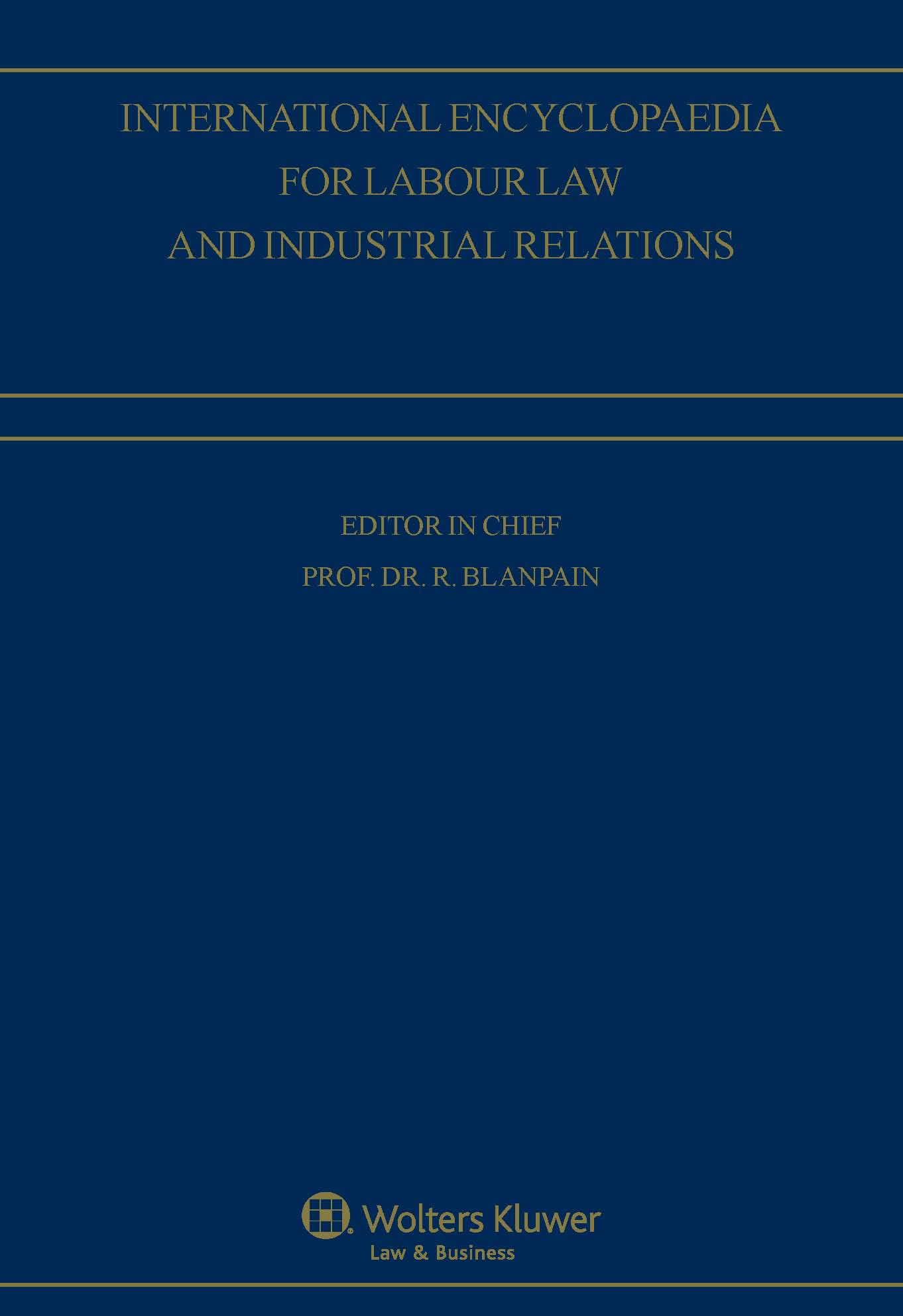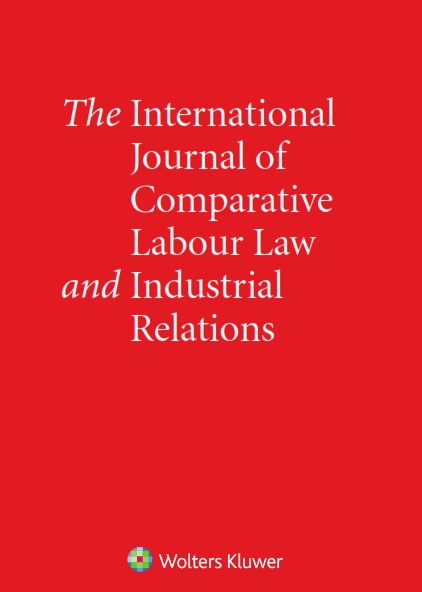OSH, Mental Health & Content Moderation in India – A Legal Framework
November 18, 2025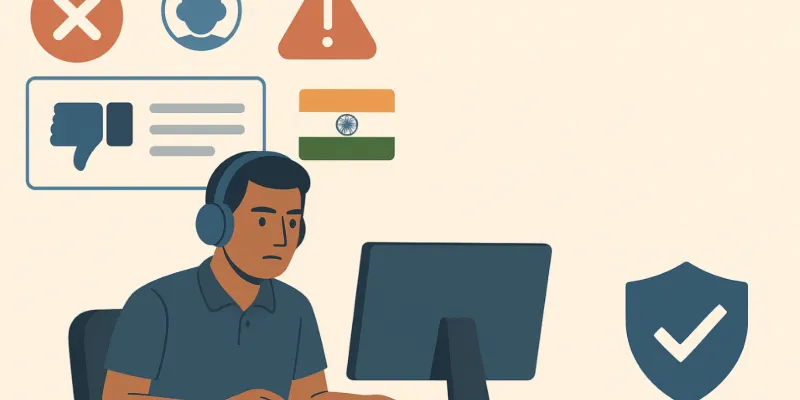
Content moderators review harmful material, exposing themselves to PTSD, depression, and anxiety. Since such exposure is inherent to their work, there is a compelling case to recognise mental health under Occupational Safety & Health (OSH) laws to ensure proper support and protection.
OSH Laws & protection for Content Moderators
At present, the regulation of safety and health at the workplace is sector-specific. For instance, the Factories Act, 1948, provides for the safety, health, and welfare of factory workers. The Mines Act, 1952, to ensure the safety of mine workers, the Dock Workers (Safety, Health and Welfare) Act, 1986, for the port and dock safety and so on. Further, the Contract and Labour (Regulation and Abolition) Act 1970 mandates essential welfare facilities such as canteens, restrooms, sanitation, drinking water, and first-aid, which directly contribute to the physical well-being and safety of workers. These laws focus on the physical safety of the workers with absolutely no mention of safety against psychosocial hazards. Interestingly, this also means that there are ‘specific’ provisions of safety in place based on the nature of work undertaken by the workers. Since mental health issues are highly likely due to the disturbing content viewed by these content moderators, psychosocial risks are therefore ‘hazards’ that need to be prevented in the content moderation industry. Therefore, mental health issues should not be ignored.
In 2019 and 2020, the Government of India consolidated 29 central labour laws into four comprehensive Labour Codes: the Code on Wages, 2019, the Industrial Relations Code, 2020, the Occupational Safety, Health and Working Conditions Code, 2020 (OSH code), and the Code on Social Security, 2020.1 These Codes aim to streamline regulations, reduce compliance burden, improve the ease of doing business, and provide enhanced protection and welfare for workers. All four Codes have been enacted by Parliament and received Presidential assent; the phased implementation has gradually begun. In light of this development, it is imperative to discuss it in the context of changes to OSH.
The ‘labour law reforms’ are mostly a consolidation of existing laws with minor changes. A notable change, however, seems to be the acknowledgement of the need to protect platform workers and gig workers. To this end, the Code on Social Security extends benefits to gig workers and platform workers. The Contract Labour (Regulation & Abolition) Act, 1970, which governs and regulates the employment of contract labour, has been subsumed by the Occupational, Safety, Health and Working Conditions Code 2020. Chapter XI of the OSH code specifically discusses the employer’s liability to protect contract labourers when an establishment employs 50 or more such workers in the preceding 12 months.2Hence, content moderators should be protected under the code once it comes into effect. The threshold limit in itself is problematic since ‘all’ establishments should be responsible for the safety of workers, but more importantly, the code only includes physical injury. There was an opportunity at this juncture to make changes to the Code in order to include psychosocial hazards at the workplace. However, this has not been the case, and the Code still remains unequipped to protect these workers.
Can India’s Mental Health Laws Bridge OSH Gaps?
The recognition of mental health as a rights-based concern in India was significantly influenced by the adoption of the United Nations Convention on the Rights of Persons with Disabilities (UNCRPD), 2006, which India ratified in 2007.3 The UNCRPD emphasised equality, dignity, and non-discrimination for persons with psychosocial disabilities, thereby requiring member states to reform archaic, custodial approaches to mental illness.4 In response, India moved beyond the custodial framework of the Mental Health Act, 1987, and enacted the Mental Healthcare Act, 2017,5 which guarantees every person the right to affordable mental healthcare, right to protection from cruel, inhuman and degrading treatment, right to legal aid, amongst other rights. 6 The Act also states that it is the duty of the appropriate government to promote mental health and preventive programs, create awareness on mental health and illnesses, to alleviate the stigma associated with it. 7This marked a historic shift from viewing mental illness merely as a medical or social problem to recognising it as a fundamental human rights issue in line with international obligations.8
The definition of Mental illness under Section 2(s) of the Mental Healthcare Act, 2017 is as follows -
‘Mental illness means a substantial disorder of thinking, mood, perception, orientation or memory that grossly impairs judgment, behaviour, capacity to recognise reality or ability to meet the ordinary demands of life, mental conditions associated with the abuse of alcohol and drugs, but does not include mental retardation which is a condition of arrested or incomplete development of mind of a person, specially characterised by sub-normality of intelligence.’9
The scope of the definition is wide enough to include the stress and anxiety content moderators experience stemming from exposure to traumatic content.10 Due to the PTSD, their ‘ability to meet the ordinary demands of life’ is significantly impaired. Even though this legislation primarily puts the onus on the Government, the range of duties to impose preventive obligations could be envisaged and adopted in the OSH code to put the obligations on employers.
The Rights of Persons with Disabilities Act, 2016, is another rights-based law that replaced its welfare-oriented predecessor, Persons with Disabilities (Equal Opportunities, Protection of Rights and Full Participation) Act, 1995, in order to comply with the UN Convention of the Rights of Persons with Disabilities (RPwD). The new law significantly expanded the rights for mental health issues. For instance, it contains several provisions related to employment and workplace equality, such as the mandate of non-discrimination in employment,11 the duty to provide reasonable accommodation, and reservations in government jobs for persons with benchmark disabilities owing to mental illness, amongst other disabilities.12 The Act also requires establishments to frame equal opportunity policies and prohibits unfair treatment in recruitment, promotion, or conditions of service.13 These provisions are rights-based and remedial in nature, ensuring that once a disability, including mental illness, is recognised, the employee is entitled to protection, inclusion, and support. The definition of Mental Illness under this Act is exactly the same as that in the Mental Healthcare Act 2017.14 However, the RPwD Act does not impose preventive duties on employers to avert workplace hazards or protect workers from developing mental issues in the first place. Instead, it addresses post-disability inclusion and anti-discrimination. In contrast, OSH laws, such as the Occupational Safety, Health and Working Conditions Code, 2020, are directed at proactively safeguarding workers’ health and safety before harm occurs. It ensures that employers comply with their duty to make the workplace a safe haven for the workers. Thus, while the RPwD Act is crucial for ensuring equality and reasonable accommodation, it does not equate to an OSH framework because of its lack of preventive measures. Further, due to the weaker bargaining position of workers compounded with the stigma attached to mental health issues, they are unlikely to reach the stage wherein the RPwD Act covers their mental illness.
Article 21 of the Constitution of India, which guarantees that no person shall be deprived of life or personal liberty except according to procedure established by law,15 has been expansively interpreted by the Supreme Court to include the right to live with dignity, health, and humane conditions of work. Psychosocial risks such as stress, harassment, workplace bullying, overwork, and job insecurity directly undermine mental health and thus fall within the ambit of this Article. Judicial precedents by the Supreme Court reinforce this trajectory. In Bandhua Mukti Morcha v. Union of India, for instance, the Court affirmed the right of bonded labourers to live with dignity;16 in Olga Tellis v. Bombay Municipal Corporation, it recognized livelihood as intrinsic to life;17 and in Consumer Education and Research Centre v. Union of India, it declared health and medical care of workers to be fundamental rights.18 In Vishaka v. State of Rajasthan, the Court held that sexual harassment at the workplace violates Articles 14, 15, and 21, and framed binding guidelines in the absence of legislation.19 These cases demonstrate judicial activism to address workplace harms that threaten dignity and well-being, thereby opening constitutional space for the regulation of psychosocial risks.
This reasoning was further fortified in a recent judgment, Sukdeb Saha v. State of Andhra Pradesh, where the Supreme Court explicitly recognised mental health as an integral component of the right to life under Article 21 and issued binding guidelines to protect student well-being in educational institutions.20 When read alongside the Mental Healthcare Act, 2017, which guarantees access to mental health services, the judgment elevates psychological well-being from a welfare concern to a constitutionally enforceable entitlement.
Taken together, these developments support a constitutional mandate under Article 21 for workplaces to proactively address psychosocial hazards, thereby safeguarding workers’ dignity, health, and mental well-being as essential elements of the right to life.
The legal framework on Mental Health and well-being has evolved, making the laws more inclusive. It provides a strong basis for the definition of mental illness, the protocol for preventive measures and emphasises the need to make the healthcare system more accessible to people. This could be extrapolated and integrated into the OSH code by stating the duties of employers to ensure the mental health of content moderators and solidifying it with the support system in place for such workers.
Conclusion
Lastly, cultural attitudes and social stigma surrounding mental health in India can significantly restrict content moderators from seeking support or recourse for the psychological strain of their work.21 Acknowledging emotional distress is often perceived as a sign of personal weakness rather than a legitimate occupational hazard, discouraging workers from accessing counselling services or reporting work-related mental health concerns. Even when companies provide internal mechanisms for psychological support, employees may hesitate to use them due to fear of judgment from peers, supervisors, or family members.22 This social pressure compounds the structural vulnerabilities created by precarious employment and high-performance expectations, leaving content moderators isolated in managing the emotional consequences of exposure to harmful or traumatic content.23 Consequently, the combination of precarious contractual arrangements, limited labour protections, and entrenched social stigma produces a workforce that is highly vulnerable yet largely invisible in public and legal discourse. Hence, it is imminent that the State intervenes to develop policy measures to address the risk content moderators endure while performing their jobs.
- 1PRS Legislative Research. (2020). The Labour Codes – An Overview. PRS India.
- 2Section 45, Code on Occupational Safety, Health and Working Conditions, 2020.
- 3https://depwd.gov.in/en/policy/uncrpd/
- 4Galderisi S, Gorwooda P, Gaebel W, et al. United Nations convention on the rights of persons with disabilities needs to be interpreted on the basis of scientific evidence regarding psychiatry, 87,89 European Psychiatry. (2018).
- 5Richard Duffy and Brendan Kelly, India’s Mental Healthcare Act, 2017 : Content, context, controversy, 170,178 International Journal of Law and Psychiatry 62 (2019 )
- 6Chapter V, Rights of Persons with Mental Illness, Mental Healthcare Act, 2017.
- 7Chapter VI, Mental Healthcare Act, 2017.
- 8Richard Duffy and Brendan Kelly, India’s Mental Healthcare Act, 2017 : Content, context, controversy, 170,178 International Journal of Law and Psychiatry 62 (2019 )
- 9Mental Healthcare Act 2017.
- 10Spence, R., Bifulco, A., Bradbury, P., Martellozzo, E., & DeMarco, J. (2023). The psychological impacts of content moderation on content moderators: A qualitative study. Cyberpsychology: Journal of Psychosocial Research on Cyberspace, 17(4),
- 11Section 20, Rights of Persons with Disabilities Act, 2016.
- 12Section 34, Rights of Persons with Disabilities Act, 2016.
- 13Section 21, Rights of Persons with Disabilities Act, 2016.
- 14Schedule – Specified Disability. Rights of Persons with Disability, 2016.
- 15Article 21, Constitution of India.
- 16Bandhua Mukti Morcha v. Union of India, (1984) 3 S.C.C. 161 (India).
- 17Olga Tellis v. Bombay Mun. Corp., (1985) 3 S.C.C. 545 (India).
- 18Consumer Educ. & Research Ctr. v. Union of India, (1995) 3 S.C.C. 42 (India).
- 19Vishaka v. State of Rajasthan, (1997) 6 S.C.C. 241 (India).
- 20Sukdeb Saha v. State of Andhra Pradesh, 2025 S.C.C. OnLine S.C. 789 (India).
- 21See Kaur, A., Kallakuri, S., Mukherjee, A. et al. Mental health-related stigma, service provision and utilization in Northern India: situational analysis. Int J Ment Health Syst 17, 10 (2023).
- 22Raghavan R, Brown B, Horne F, Kumar S, Parameswaran U, Ali AB, Raghu A, Wilson A, Svirydzenka N, Venkateswaran C, Kumar M, Kamal SR, Barrett A, Dasan C, Varma A, Banu A. Stigma and mental health problems in an Indian context. Perceptions of people with mental disorders in urban, rural and tribal areas of Kerala. Int J Soc Psychiatry. 2023 Mar;69(2):362-369. doi: 10.1177/00207640221091187. Epub 2022 May 13. PMID: 35549575; PMCID: PMC9983047.
- 23Ankur Poddar and Raina Chhajer, Detection and disclosure of workplace mental health challenges: an exploratory study from India, BMC Public Health 24, 1874 (2024).
You may also like




